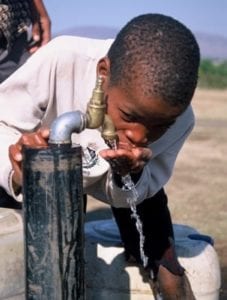Government is making progress in providing basic services and improving the lives of South Africa’s poor.
The proportion of households accessing basic services has grown, with 80% of households having access to water and 77% accessing electricity, Minister in the Presidency Jeff Radebe said on Sunday. The proportion of households accessing sanitation went up from 62% to 80%, the Planning, Monitoring, and Evaluation Minister told reporters in Pretoria at the release of the . Access to basic services has increased despite the fact that the number of households in the country has grown from 11 million to 15.6 million between 2002 and 2014. “This is by no means a modest, but rather a significant achievement,” he said.Neglect of maintenance a problem
Minister Radebe said however there had been neglect of routine operations and maintenance by some municipalities. “This has meant that even where infrastructure exists this is sometimes non-operational, resulting in disruptions of supply.”The Minister noted that despite the increase in access, illegal connections to the electricity grid were a concern.
“To prevent collapse of the above-mentioned services, maintenance and proper operations should be given top priority,” he said, adding that National Development Plan envisages rural communities with greater opportunities to participate fully in the economic, social and political life of the country, supported by good-quality education, healthcare, transport and other basic services. The 2014 report indicates that government is providing for the country’s poor. It noted that government’s social grants are playing a major role in reducing poverty. Social assistance programmes have expanded from covering 2.7 million in 1994 to over 12 million in 2014. This means that government was spending close to 3.1 % of the Gross Domestic Product (GDP) on social grants. The child support grant had the largest growth of all grants from just under 22 000 in 1998 to more than 11.7 million child beneficiaries in 2014.






